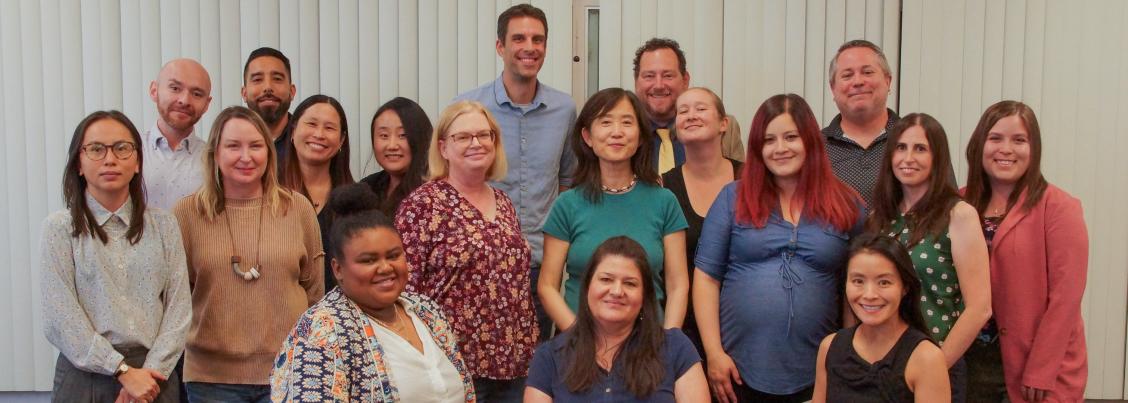Mission Statement
The vision of the Department of Psychology is summed up in one word: “Relevance”. The Department of Psychology, housed in a college serving one of the world’s most diverse urban regions, is committed to excellence in teaching, research, and service to the community. Our program is designed to provide students with a strong academic background in psychology, as well as to help them develop professional competence. Our students are encouraged to develop critical thinking skills, creative abilities, interpersonal skills, ethical values, and integrity in an inclusive community in which teaching and mentoring of students is valued. Our courses encourage scholarship, intellectual inquiry, professional achievement, and service to the community. Our students acquire many skills through fieldwork and service learning as well as involvement in research projects guided by our faculty. We encourage students to gain knowledge and comprehension of the theories, concepts, and empirical approaches used in psychology and their application to the human condition. Our program offers a broad spectrum of theoretical approaches including biological, developmental, individual and social systems as well as learning and cognitive processes. As part of their academic training, our students gain knowledge and understanding of research methodology and the statistical analysis of empirical data in our core laboratory courses. Through the Department’s commitment to applied social science research, our students obtain the critical core skills necessary to meet the needs of the region, as well as to be competitive in the multicultural market place as either members of the workforce, or as graduate students.
Psychology Major Student Learning Outcomes (SLO)
SLO 1: Knowledge Base in Psychology: Students should demonstrate fundamental knowledge and comprehension of the major concepts, theoretical perspectives, historical trends, and empirical findings to discuss how psychological principles apply to behavioral problems. Students completing foundation courses should demonstrate breadth of their knowledge and application of psychological ideas to simple problems; students completing a baccalaureate degree should show depth in their knowledge and application of psychological concepts and frameworks to problems of greater complexity.
- 1.1 Describe key concepts, principles, and overarching themes in psychology
- 1.2 Develop a working knowledge of psychology’s content domains
- 1.3 Describe applications of psychology
SLO 2: Scientific Inquiry and Critical Thinking : The skills in this domain involve the development of scientific reasoning and problem solving, including effective research methods. Students completing foundation-level courses should learn basic skills and concepts in interpreting behavior, studying research, and applying research design principles to drawing conclusions about psychological phenomena; students completing a baccalaureate degree should focus on theory use as well as designing and executing research plans.
- 2.1 Use scientific reasoning to interpret psychological phenomena
- 2.2 Demonstrate psychology information literacy
- 2.3 Engage in innovative and integrative thinking and problem solving
- 2.4 Interpret, design, and conduct basic psychological research
- 2.5 Incorporate sociocultural factors in scientific inquiry
SLO 3: Ethical and Social Responsibility in a Diverse World : The skills in this domain involve the development of ethically and socially responsible behaviors for professional and personal settings in a landscape that involves increasing diversity. Students completing foundation-level courses should become familiar with the formal regulations that govern professional ethics in psychology and begin to embrace the values that will contribute to positive outcomes in work settings and in building a society responsive to multicultural and global concerns. Students completing a baccalaureate degree should have more direct opportunities to demonstrate adherence to professional values that will help them optimize their contributions and work effectively, even with those who do not share their heritage and traditions. This domain also promotes the adoption of personal and professional values that can strengthen community relationships and contributions.
- 3.1 Apply ethical standards to evaluate psychological science and practice
- 3.2 Build and enhance interpersonal relationships
- 3.3 Adopt values that build community at local, national, and global levels
SLO 4: Communication: Students should demonstrate competence in writing and in oral and interpersonal communication skills. Students completing foundation-level courses should write a cogent scientific argument, present information using a scientific approach, engage in discussion of psychological concepts, explain the ideas of others, and express their own ideas with clarity. Students completing a baccalaureate degree should produce a research study or other psychological project, explain scientific results, and present information to a professional audience. They should also develop flexible interpersonal approaches that optimize information exchange and relationship development.
- 4.1 Demonstrate effective writing for different purposes
- 4.2 Exhibit effective presentation skills for different purposes
- 4.3 Interact effectively with others
SLO 5: Professional development: The emphasis in this goal is on application of psychology-specific content and skills, effective self-reflection, project-management skills, teamwork skills, and career preparation. Foundation-level outcomes concentrate on the development of work habits and ethics to succeed in academic settings. The skills in this goal at the baccalaureate level refer to abilities that sharpen student readiness for post-baccalaureate employment, graduate school, or professional school. These skills can be developed and refined both in traditional academic settings and in extracurricular involvement. In addition, career professionals can be enlisted to support occupational planning and pursuit. This emerging emphasis should not be construed as obligating psychology programs to obtain employment for their graduates but instead as encouraging programs to optimize the competitiveness of their graduates for securing places in the workforce.
- 5.1 Apply psychological content and skills to career goals
- 5.2 Exhibit self-efficacy and self-regulation
- 5.3 Refine project-management skills
- 5.4 Enhance teamwork capacity
- 5.5 Develop meaningful professional direction for life after graduation










